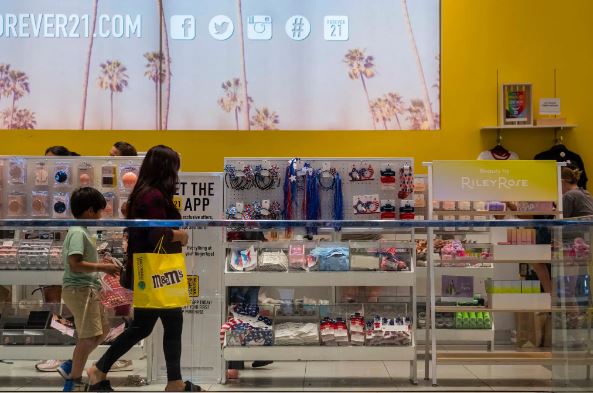Chinese e-commerce giant Shein is joining up with Forever 21’s parent company to further penetrate the American market. This partnership will unite two of the most prominent brands in the fast fashion industry, both in the virtual realm and in brick-and-mortar shopping centres throughout the nation.
Forever 21’s clothing will be offered on Shein’s website, and Shein will sell Forever 21’s merchandise in “store within a store” locations in the future. As part of the agreement, both parties will purchase shares in the other.
Forever 21 was a pioneer in the fast fashion industry, bringing its signature rotating racks of $5 shirts and $10 gowns to malls throughout the United States in the early 2000s.
Shein, established in 2012 and now headquartered in Singapore, has been more well-liked among American consumers due to its innovative approach to the fast fashion market. The company’s supply network and technologies enable the production of hundreds of new designs within weeks, giving customers—especially those in their teens and twenties—more alternatives to suit their changing preferences.
Shein, which advertises very inexpensive costs, claims to have 150 million users of its app. It has also tried out temporary stores, or “pop-ups,” in the US.
About a third of the Sparc Group, which has controlled Forever 21 since it emerged from bankruptcy in 2020, will be acquired by Shein. Sparc was founded by mall operator Simon Property Group and retail behemoth Authentic Brands Group. Sparc, whose holdings also include Brooks Brothers and Eddie Bauer, will get a minority stake in Shein as a result of the agreement.
According to Jane Hali & Associates retail analyst Jessica Ramirez, Shein is a major player in the industry. In contrast to Shein, Forever 21 can boast a sizable portfolio of retail locations.
Shein has been accused of exploiting forced labour and plagiarising the work of independent designers, among other things, in order to manufacture its goods. The corporation has disputed allegations that it employs slave labour or sources its cotton from China’s Xinjiang area. Due to fears of human rights violations against the Uyghur people (who are mostly Muslim), the United States has restricted imports from the area. Recently, Shein established a programme to recruit and compensate freelance designers to create garments and other products for the brand.
A public relations disaster occurred in June when Shein took a group of social media influencers on a tour of its factory in China. After claiming that they had not seen any problems with working conditions at the plants, the influencers came under fire on social media.
Forever 21 has had problems of its own. As consumers moved away from shopping malls, the company filed for bankruptcy and shuttered more than 30 percent of its shops in the United States in 2019. Competition grew from both traditional stores and e-commerce startups including H&M, Zara, Fashion Nova, and Shein.

